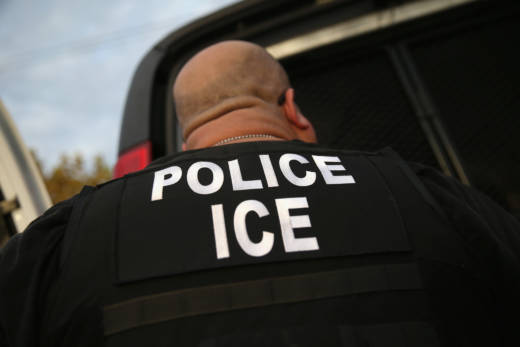Immigration officials said Chhouen was ordered deported in 2001 after a criminal conviction, which officials only described as an "aggravated felony, among other convictions, in 1999." He remained in the U.S. on supervised release, which allowed him to live and work here legally so long as he checked in.
Officials said Chhouen's arrest is part of an ongoing effort to repatriate Cambodian nationals with deportation orders. Last month, the Trump administration imposed visa sanctions on Cambodia and three other countries for not accepting deportees.
“The United States continues to work with the Government of Cambodia to establish a reliable processes for the issuance of travel documents and their acceptance of the prompt, lawful return of Cambodian nationals who are subject to removal from the United States," ICE spokeswoman Lauren Mack said in an email.
According to his family, Chhouen arrived in the United States when he was a child, and is unfamiliar with Cambodia.
ICE would not confirm how many Cambodians have been arrested in recent weeks, but community groups say there are many.
“There has been a lot of fear in the community because there have been so many people rounded up, over a hundred," said Katrina Dizon, immigration policy manager with the Southeast Asia Resource Action Center, an advocacy group with offices in Sacramento and Washington, D.C.
Dizon said her group has fielded calls over a couple of weeks about Cambodian immigrants arrested nationwide, mostly in California.
"I have folks from Fresno, Monterey Park, Anaheim, Stockton, Orange, Long Beach, Oakland," Dizon said.
Davisna Oum with United Cambodian Community of Long Beach, a community group in the city's Cambodia Town neighborhood, said his group has also received calls from family members about arrests of relatives over the past two weeks.
In a letter this week, Los Angeles County Supervisor Janice Hahn urged U.S. Department of Homeland Security officials to not use the arrested immigrants as "bargaining chips" in negotiations with the Cambodian government.
Cambodia has long been considered among so-called "recalcitrant" nations that do not fully cooperate with U.S. officials in accepting back deported nationals. While Cambodians have been deported over the years, U.S. officials have had problems getting that country's officials to issue travel documents, which are needed to repatriate deportees.
In September, the Trump administration announced visa sanctions against Cambodia, Eritra, Guinea, and Sierra Leone "due to lack of cooperation in accepting their nationals ordered removed from the United States." Temporary visitor visas for traveling Cambodians were discontinued as a result.
ICE spokeswoman Mack said the U.S. has more than 500 travel document requests pending with the Cambodian government, some dating back nearly a decade. She said there are more than 1,900 Cambodian nationals in the U.S. who have final deportation orders, and that the majority of these have criminal convictions.
Tuot said that his cousin, Chhouen, served his time many years ago but has led a stable life since then, working for a telephone company and staying out of trouble.
"He's been a changed man since he came out, trying to stay positive, trying to keep his life on track," according to Tuot.
Tuot, who lives in Philadelphia, was visiting his cousin in Long Beach last week when Chhouen was detained. He said the family has hired an attorney in hopes of keeping Chhouen in the country.

